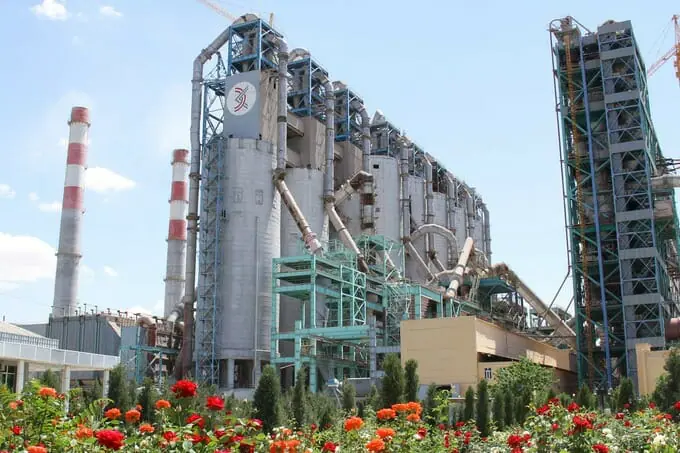
Uzbekistan has been going through a massive privatization campaign as the country’s government offers investors almost everything to small and big companies and banks. However, not every potential investor is happy about the privatization, citing the lack of transparency.
Communication in business
The potential privatization of Uzagroexportbank was among the hottest news for Uzbekistan’s business community last year. In October, some local media reported that the government wanted to sell the bank directly to Support Level, a company controlled by Olimjon Shadiyev. There were so many rumors in the market that billionaire Patokh Chodiyev even tried to distance himself from the deal.
In December 2022, Uzbekistan’s State Assets Management Agency (SAMA) officially announced the deal with Support Level. It turned out that the company has acquired the government’s stake in the bank for $5 million. The company also promised to increase the bank’s registered capital by $2.2 and allocate $50 million to develop the bank’s infrastructure.
Support Level’s offer was 25% higher than the offer made by Russian Sovcombank in February 2022. At the time, the two sides failed to reach an arrangement because of the Russian invasion of Ukraine and international sanctions imposed against Russia. That is why Grant Thornton, who provides the government of Uzbekistan with consulting services in the sphere of privatization, recommended accepting this offer.
The fewer people knew about the deal with Support Level, the fewer questions it could have raised, according to Karen Srapionov, a partner in Avesta Investment Group.
«Proper communication can help to avoid too many questions from the media. I am sure that representatives of the professional community who know how it works had fewer concerns about the deal with Uzagroexportbank than representatives of the media. The bank hadn’t met license requirements for years and generated nothing but losses. The entity has virtually no business and the buyer just bought the license. In light of these facts, the price of the deal is fair enough,» the expert noted.
The concrete case
However, there was no criticism toward the privatization of a 75% public share in Ipoteka Bank by the Hungarian OTP Group or the first attempt to sell Uzagroexportbank.
The market had waited for the deal with OTP for more than a year because of the war in Ukraine and the uncertainty it caused. The deal should be closed in the first half of 2023. No financial details are available.
«I can say that the government is always prone to be transparent when it comes to selling big public assets. For example, our company supported the privatization process of Poytaxt Bank while another international consulting company helped the government with Uzagroexportbank when they negotiated with Sovcombank,» said Rustam Mukhametshin, executive director of the consulting department in Deloitte Uzbekistan.
However, it doesn’t mean that the privatization story is always idyllic. For example, the government sold Qizilqumsement at a 25% discount from the market price last year, according to Srapionov.
«This deal has caused the company’s stock to plunge. There is no longer interest in this stock, although they used to be highly liquid,» the analyst said.
In January 2022, the government sold its share in the cement plant (86.92%) to United Cement Group from Cyprus for $175 million. As of January 24, 2023, United Cement Group possessed 68.20% of the registered capital of Qizilqumsement, according to the state data.
«For many, that deal is associated with something negative. First of all, the privatization process of the cement plant wasn’t transparent, which obviously didn’t make investors happy. Second, minority shareholders expected that the new majority stakeholder would make them an offer as the law requires. Nevertheless, it never happened and the government did nothing to fix the situation,» Denis Spirin from Prosperity Capital Management said.
The expert says that this case is a vivid example of poor corporate governance as well as a lack of respect toward portfolio investors in Uzbekistan because Qizilqumsement is one of the biggest public companies with many portfolio investors. Such neglect makes investors less interested in Uzbekistan’s security papers and low interest in the initial public offering of UzAuto Motors proves this.
Initially, Uzbekistani authorities planned to sell about 5% of UzAuto Motors stock but realized that the market could only buy up to 1%. The government wanted investors to file their applications before December 22 to have an IPO on December 23. However, it was forced to reschedule the IPO for December 28, 2022, and then for February 15, 2023, as the current interest fell behind the expected rate. As of the time of rescheduling of the IPO, investors were ready to buy just 8.65% of the offering.
According to Georgi Paresishvili, chairman of the Tashkent Stock Exchange, foreign investors are used to keeping their stocks in safe places like international depositaries and custodian banks, which are absent in Uzbekistan. So, it would be naïve to wait for an influx of foreign investors unless these institutions appear in the country, says the expert. Uzbekistan is currently negotiating with Clearstream, so this could change soon.
Different approaches
Another scandal blew up last year when the public stake in the payment system Uzcard was sold for $19 million without open bidding. Co-owners of the company realized their right of preemption and bought a 75% stake in the company. The SAMA announced the deal only after local media reported the transaction.
Given that this stock went private without a public tender, it is hard to say if the price is fair. Srapionov believes the government has sold its stake in Uzcard with a discount. Because of this and other dubious deals with public assets, nobody noticed deals with Hyatt Regency and UzAuto Trailer (which produces trailers). Thus, the authorities sold their stake in the hotel to Abu Dhabi Uzbek Investment for $87 million. The second asset was sold to the Russian Industrial Park Khimgrad for $50 million.
«Foreign investors want privatization to be open and transparent. These two factors speak about a country’s investment attractiveness louder than any words. Of course, we can imagine that sometimes the state interests require less transparency for such privatization. For example, some situations may need confidentiality to raise an asset’s price to a maximum. But it is difficult to imagine that non-transparent privatization, as a result of which the state does not receive a fair price for its asset, corresponds to the interests of the state.,» Spirin highlighted.

